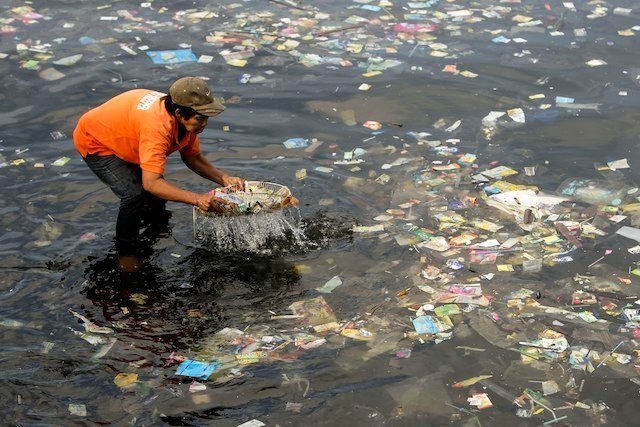SUMMARY
This is AI generated summarization, which may have errors. For context, always refer to the full article.

THE HAGUE, Netherlands – A revolutionary floating dam that traps plastic bags, bottles and other waste choking the world’s oceans will be tested at sea for the first time in 2016, the Ocean Cleanup foundation said.
“It will be the first time our barrier design will be put to the test in open waters,” the foundation said of the 100 meter-long (62 miles) barrier segment that will be deployed 23 kilometers off the coast of The Netherlands in the second quarter of the year.
Most ocean waste collection programs use boats to scour the surf for the plastic flotsam and jetsam in which dolphins, seals and other sea creatures become entangled. (INFOGRAPHIC: Plastic in our seas: Why you should care)
Ocean Cleanup’s barrier uses currents to passively ensnare waves of garbage – while allowing fish and other sea creatures through.
The foundation said the goal of the North Sea test, which comes after earlier tests in controlled environments on Dutch lakes, was “to monitor the effects of real-life sea conditions, with a focus on waves and currents.”
Apart from spinning a deadly web for marine life plastic waste is also ingested by some creatures, with sea turtles for example mistaking plastic bags for jellyfish.
The contaminants then enter the food chain, where they are suspected of links to cancer, infertility and other health risks.
By 2020, the Ocean Clean project hopes to have installed a 100-kilometer-long V-shaped floating barrier in the Great Pacific Garbage Patch – a vortex in the North Pacific where trash collects.
Each arm of the V would consist of a screen 3 meters deep that blocks waste and directs it to a central point where it can be collected for recycling. – Rappler.com
Add a comment
How does this make you feel?
There are no comments yet. Add your comment to start the conversation.